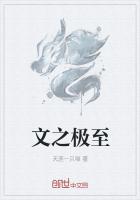Besides many other things, Raggles was a poet. He wascalled a tramp; but that was only an elliptical way of sayingthat he was a philosopher, an artist, a traveller, a naturalistand a discoverer. But most of all he was a poet. In all hislife he never wrote a line of verse; he lived his poetry. HisOdyssey would have been a Limerick, had it been written.
But, to linger with the primary proposition, Raggles was apoet.
Raggles’s specialty, had he been driven to ink and paper,would have been sonnets to the cities. He studied cities aswomen study their reflections in mirrors; as children studythe glue and sawdust of a dislocated doll; as the men whowrite about wild animals study the cages in the zoo. A city toRaggles was not merely a pile of bricks and mortar, peopledby a certain number of inhabitants; it was a thing with a soulcharacteristic and distinct; an individual conglomerationof life, with its own peculiar essence, flavor and feeling.
Two thousand miles to the north and south, east and west,Raggles wandered in poetic fervor, taking the cities to hisbreast. He footed it on dusty roads, or sped magnificentlyin freight cars, counting time as of no account. Andwhen he had found the heart of a city and listened toits secret confession, he strayed on, restless, to another.
Fickle Raggles! —but perhaps he had not met the civiccorporation that could engage and hold his critical fancy.
Through the ancient poets we have learned that thecities are feminine. So they were to poet Raggles; and hismind carried a concrete and clear conception of the figurethat symbolized and typified each one that he had wooed.
Chicago seemed to swoop down upon him with a breezysuggestion of Mrs. Partington, plumes and patchouli, andto disturb his rest with a soaring and beautiful song offuture promise. But Raggles would awake to a sense ofshivering cold and a haunting impression of ideals lost in adepressing aura of potato salad and fish.
Thus Chicago affected him. Perhaps there is a vaguenessand inaccuracy in the description; but that is Raggles’sfault. He should have recorded his sensations in magazinepoems.
Pittsburg impressed him as the play of “Othello”
performed in the Russian language in a railroad stationby Dockstader’s minstrels. A royal and generous lady thisPittsburg, though—homely, hearty, with flushed face,washing the dishes in a silk dress and white kid slippers,and bidding Raggles sit before the roaring fireplace anddrink champagne with his pigs’ feet and fried potatoes.
New Orleans had simply gazed down upon him from abalcony. He could see her pensive, starry eyes and catchthe flutter of her fan, and that was all. Only once hecame face to face with her. It was at dawn, when she wasflushing the red bricks of the banquette with a pail ofwater. She laughed and hummed a chansonette and filledRaggles’s shoes with ice-cold water. Allons!
Boston construed herself to the poetic Raggles in anerratic and singular way. It seemed to him that he haddrunk cold tea and that the city was a white, cold cloththat had been bound tightly around his brow to spur himto some unknown but tremendous mental effort. And,after all, he came to shovel snow for a livelihood; and thecloth, becoming wet, tightened its knots and could not beremoved.
Indefinite and unintelligible ideas, you will say; but yourdisapprobation should be tempered with gratitude, forthese are poets’ fancies—and suppose you had come uponthem in verse!
One day Raggles came and laid siege to the heart of thegreat city of Manhattan. She was the greatest of all; and hewanted to learn her note in the scale; to taste and appraiseand classify and solve and label her and arrange her withthe other cities that had given him up the secret of theirindividuality. And here we cease to be Raggles’s translatorand become his chronicler.
Raggles landed from a ferry-boat one morning andwalked into the core of the town with the blasée air of acosmopolite. He was dressed with care to play the r?leof an “unidentified man.” No country, race, class, clique,union, party clan or bowling association could have claimedhim. His clothing, which had been donated to him piecemealby citizens of different height, but same number ofinches around the heart, was not yet as uncomfortable tohis figure as those speciments of raiment, self-measured,that are railroaded to you by transcontinental tailors witha suit case, suspenders, silk handkerchief and pearl studsas a bonus. Without money—as a poet should be—butwith the ardor of an astronomer discovering a new star inthe chorus of the milky way, or a man who has seen inksuddenly flow from his fountain pen, Raggles wanderedinto the great city.
Late in the afternoon he drew out of the roar andcommotion with a look of dumb terror on his countenance.
He was defeated, puzzled, discomfited, frightened. Othercities had been to him as long primer to read; as countrymaidens quickly to fathom; as send-price-of-subscriptionwith-answer rebuses to solve; as oyster cocktails to swallow;but here was one as cold, glittering, serene, impossible as afour-carat diamond in a window to a lover outside fingeringdamply in his pocket his ribbon-counter salary.















